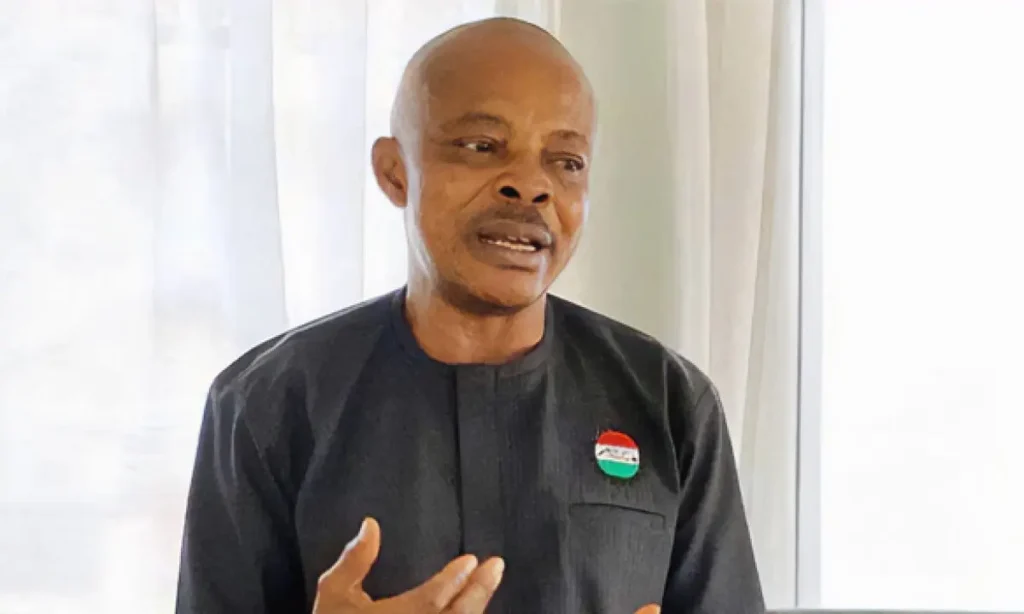A delegation from the International Monetary Fund (IMF) recently visited the headquarters of the Nigeria Labour Congress (NLC) to evaluate how ongoing economic policies are impacting Nigerian workers and citizens at large.
The two-member team included the IMF’s Resident Representative in Nigeria, Christian H. Ebeke, and Axel Schimmelpfennig from the Washington, D.C. office. Their visit aimed to gather firsthand insight on Nigeria’s current socioeconomic climate and its toll on the population—particularly the labor force. These findings will be included in the IMF’s annual country report for Nigeria.
According to sources, the meeting was part of a follow-up to discussions between the NLC President and representatives from the World Bank and IMF during a previous engagement in Washington.
IMF Clarifies Its Role
At the meeting, which took place at Labour House, the IMF officials were received by the NLC leadership. The delegation explained that their mission was driven by the IMF’s interest in understanding Nigeria’s economic realities, especially regarding fiscal challenges the government has faced since the start of its current administration.
The IMF emphasized that its policy suggestions are not binding but rather recommendations tailored to each country’s situation. The team also noted that governments often adapt such advice based on domestic political considerations. This appeared to be a subtle attempt to distance the organization from unpopular economic decisions recently made by the Nigerian government.
The IMF expressed interest in maintaining a steady line of communication with the NLC moving forward.
NLC Pushes Back Against IMF-Endorsed Austerity
Responding to the IMF, NLC President Joe Ajaero criticized policies that prioritize profits over people’s welfare. He expressed deep concerns over the IMF’s frequent push for austerity measures, which he said have exacerbated suffering among Nigerians.
Ajaero specifically pointed to the removal of fuel subsidies as a policy that has had severe consequences, leading to widespread poverty and hunger. He insisted there was no genuine subsidy to remove, accusing the government of profiting from crude oil sales while pushing the narrative of subsidy reform as an excuse to hike fuel prices.
He also questioned the lack of transparency surrounding the use of funds supposedly saved from subsidy removal, noting the continued rise in government borrowing.
The NLC President lamented the sharp rise in the cost of essentials like education and transportation, saying this has worsened the plight of ordinary Nigerians. He condemned the growing gap between citizens and public officials, with the latter appearing to benefit from the reforms while the masses suffer.
Ajaero stressed the need for reforms that actually improve people’s lives rather than enrich the elite. He also faulted the government for excluding stakeholders in critical decisions such as subsidy removal, arguing that inclusive consultation might have led to more effective and balanced solutions.
On Minimum Wage and Tax Burden
Addressing the state of the minimum wage, Ajaero noted that the proposed N70,000 wage has not been sincerely implemented across all tiers of government. Instead, he said, the authorities have imposed more taxes, further straining the already burdened populace.
He urged the IMF to advise the Nigerian government to reduce this economic pressure, warning that continued hardship could lead to widespread unrest if left unaddressed.
In his final remarks, Ajaero stated that the ongoing reforms have deepened inequality in the country, worsening life for the majority while benefiting a privileged few.
For advert placement and inquiries, publication of press releases, and news coverages, please call: Phone: 08052898434 Email: editor@eyereporters.com, click here to view the advert rates.



